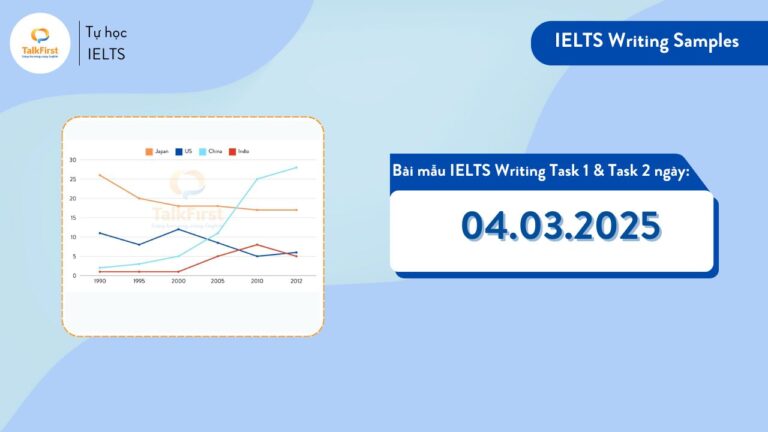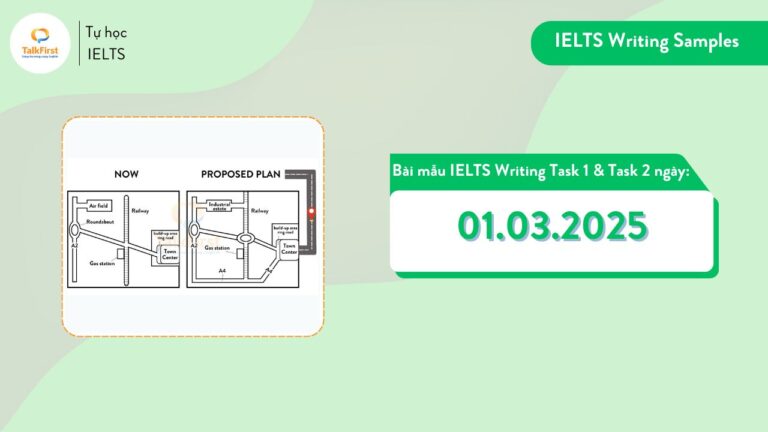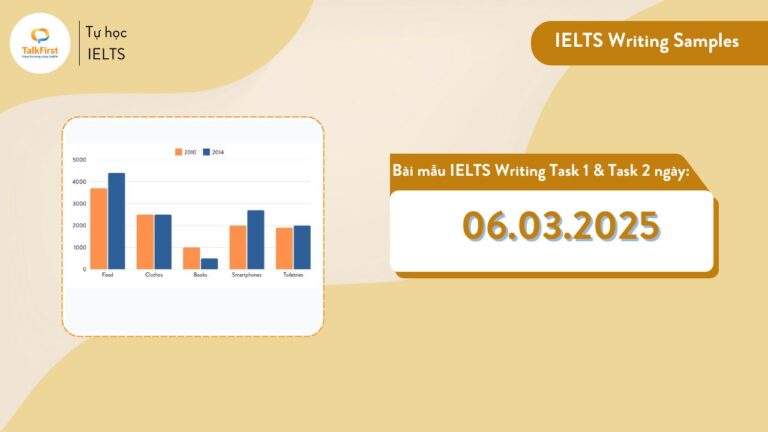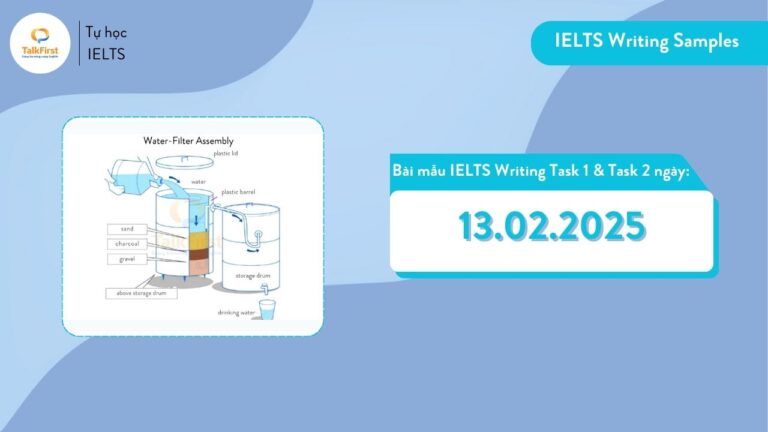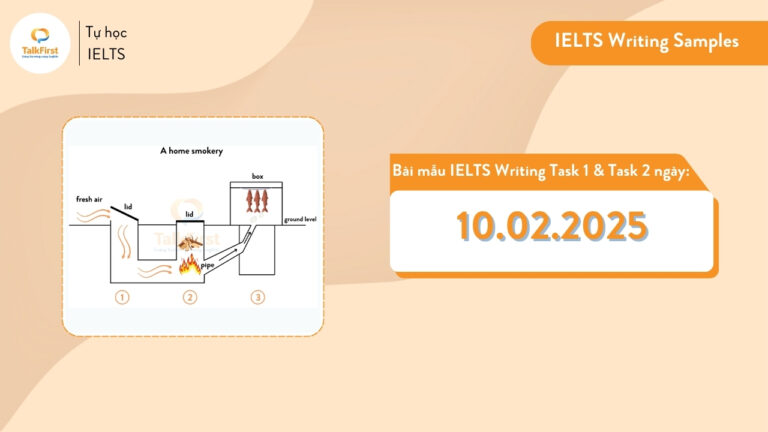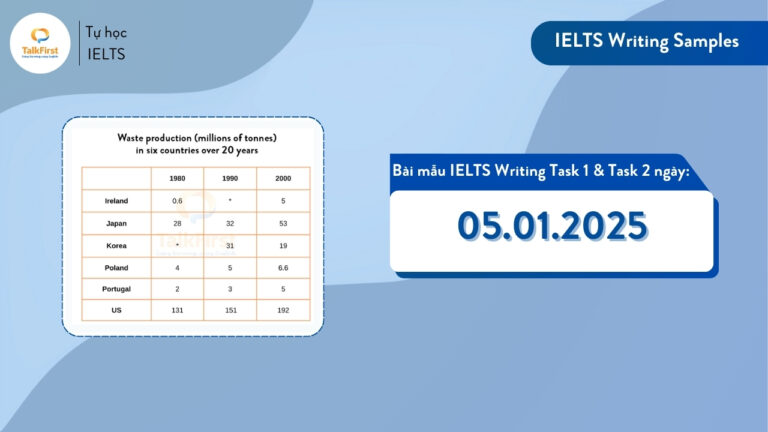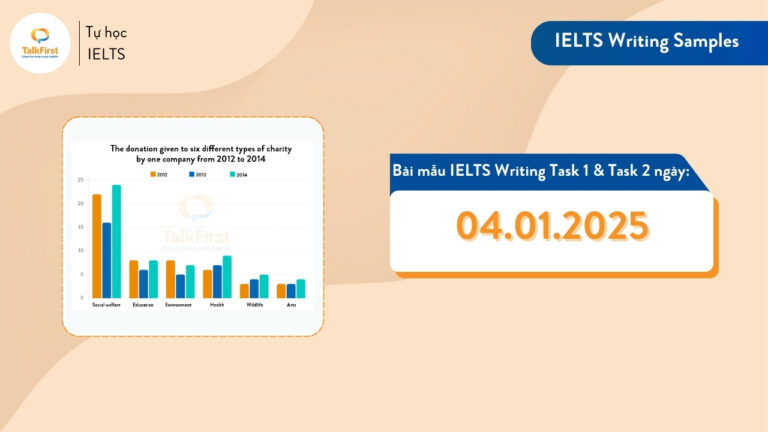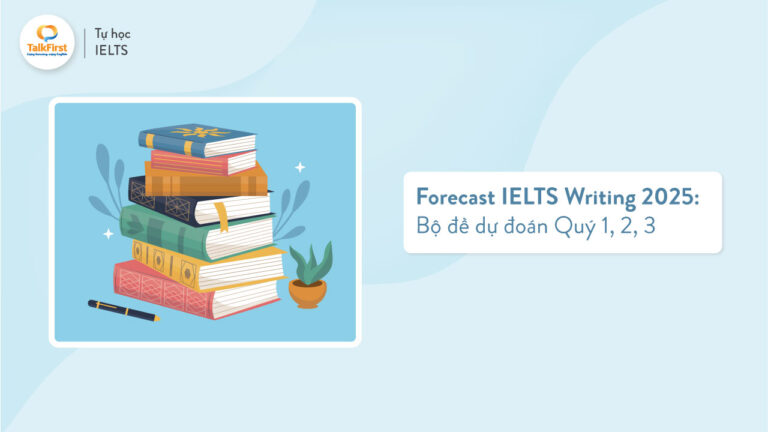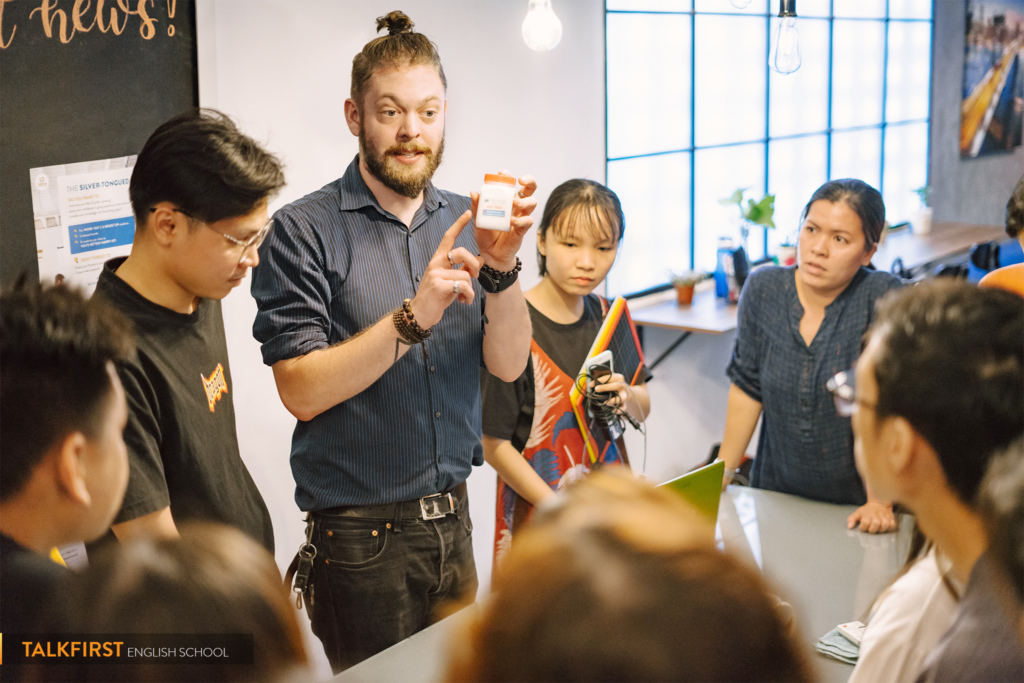Bài viết hôm nay, TalkFirst sẽ gởi đến cả nhà sample answer cho đề thi IELTS Writing Task 2, kì thi IELTS trên máy tính đầu tháng 5/2021. Để các bạn dễ nhớ, thì đây là đề Task 2 của chung đợt thi với đề Task 1 “cây cầu – the bridges” siêu khoai.
Cả nhà có thể xem bài mẫu đề Task 1 “Cây cầu” ở đây: Giải mã đề thi IELTS Writing Task 1 “Cây cầu – The bridges” siêu khó – Đề computer-delivered tháng 05/2021

1. Đề IELTS Writing Task 2 & phân tích cơ bản
Task 2: Instead of requiring primary school students to do experiments themselves, schools should only allow them to watch experiments demonstrated by teachers.
To what extent do you agree or disagree?
Với dạng bài To what extent, các bạn có thể chọn trả lời theo nhiều hướng, và thường câu Thesis statement sẽ có những cụm như strongly/partly agree hoặc disagree. Tuy nhiên, riêng với đề bài này, các bạn để ý thấy trong mệnh đề “Schools should only allow them to watch experiments demonstrated by teachers” có điểm gì đặc biệt không? Đó chính là từ ‘only’!
Viết lại mệnh đề này trong tiếng Việt sẽ là: Các ngôi trường chỉ nên cho phép học sinh tiểu học xem giáo viên tiến hành thí nghiệm.
Như vậy, nếu bạn chọn hướng ủng hộ cả hai quan điểm thì bạn không thể viết là ‘I partly agree/disagree’ được, mà phải là ‘I strongly agree/disagree’. Các bạn hãy cùng tham khảo bài mẫu được biên soạn bởi đội ngũ chuyên gia học thuật band 8.0+ tại TalkFirst sau đây nhé!
2. Sample Answer band 8.0+
Hands-on experience has always been essential to students’ knowledge acquisition, especially in science subjects such as Chemistry and Physics. These days, there is an ongoing debate about whether elementary school students should only observe teachers’ demonstrations. Personally, I strongly disagree with this notion since alongside such observations, having pupils conduct experiments on their own also offers myriad merits.
On the one hand, it seems hard to deny the role of demonstrations in the learning process. Firstly, through a demonstration, students are able to better grasp difficult theories or concepts. This is because teachers can not only provide visual examples and relevant explanations but also draw students’ attention to the core aspects of the underlying principles. Secondly, unlike children who tend to be careless and mischievous, teachers are often provided with professional training to protect the whole class. For instance, when performing a chemistry experiment with hazardous substances, teachers are more reliable as they would know how to use laboratory equipment correctly and minimize potential risks.
On the other hand, students can greatly benefit from hands-on experiments in the classroom. The most obvious benefit is that they can acquire advanced cognitive skills which are vital to their studies. In fact, by collecting and analyzing data to answer a question or prove a hypothesis, students’ critical thinking and logical reasoning can be developed from an early age, thus boosting their academic performance. Furthermore, being directly involved in experiments may spark pupils’ interest in the act of doing research or various scientific fields in general. This is a probable outcome if they have fun carrying out practical work and achieve success with their attempts.
In conclusion, I am against the idea of primary school children only watching experiments. It is imperative that both classroom demonstration and hands-on learning be implemented to promote students’ understanding of complex concepts, ensure their safety, foster their cognitive development as well as kindling future interests.
317 words – Band 8.0+ – Written by TalkFirst!
3. Các từ vựng cần highlight
- Hands-on experience: kinh nghiệm có được từ trải nghiệm thực tế
- Conduct/perform/carry out/do an experiment: thực hiện thí nghiệm
- Underlying principles: những nguyên lý cơ bản, đóng vai trò nền tảng
- Hazardous substances: các chất độc hại
- Laboratory equipment: thiết bị thí nghiệm
- Minimize potential risks: giảm thiểu rủi ro có thể xảy ra
- Spark one’s interest in N/ V-ing: khơi gợi niềm yêu thích
- Advanced cognitive skills: những kĩ năng nhận thức nâng cao
- Cognitive development: sự phát triển nhận thức
Chúc bạn luyện thi IELTS thật tốt qua bài mẫu trên đây và đừng quên theo dõi TalkFirst mỗi ngày để cập nhật cho mình những kiến thức bổ ích về tiếng Anh nhé!
Xem thêm các bài viết liên quan:
Nếu bạn đang tìm kiếm khoá học luyện thi IELTS uy tín, tham khảo thêm Khóa học Luyện thi IELTS cam kết đầu ra tại Anh ngữ TalkFirst.

